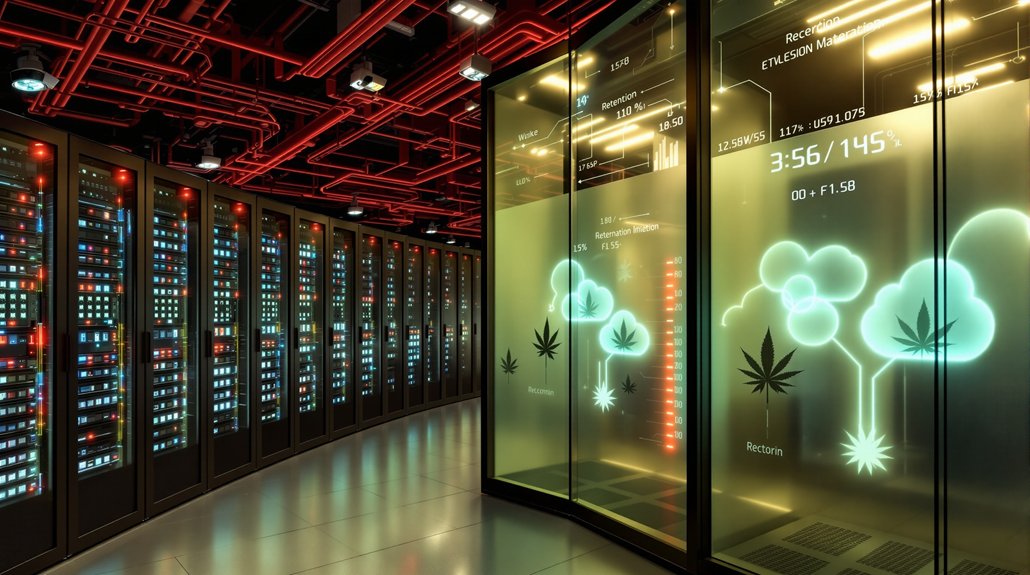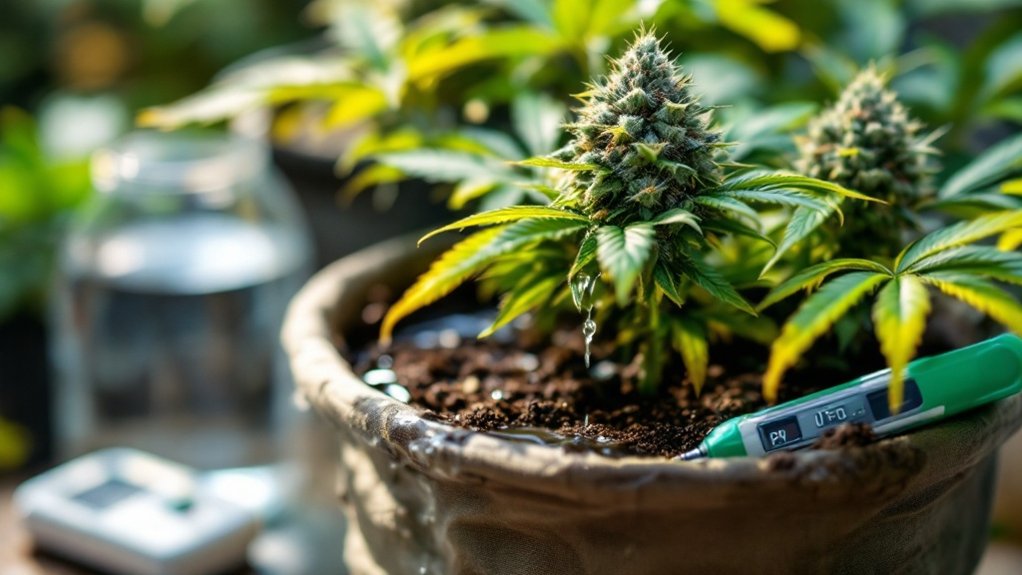Cannabis businesses face a complex web of video storage requirements that can make or break their compliance status, with retention periods ranging from weeks to years depending on state regulations. The choice between cloud-based systems and local Network Video Recorders (NVRs) carries significant financial implications, particularly for multi-state operators juggling different technical specifications across jurisdictions. Understanding these compliance costs and storage trade-offs becomes critical as regulatory scrutiny intensifies and businesses seek scalable solutions that won’t drain their operational budgets.
Understanding State Video Retention Requirements and Technical Specifications

How dramatically do video storage requirements vary across different cannabis jurisdictions?
The differences are substantial, with retention periods ranging from Michigan’s minimal 30 days to Pennsylvania’s extensive four-year mandate.
Most states settle on 90-day requirements, though specific details create complexity for multi-state operators.
Technical specifications remain relatively consistent across jurisdictions.
Continuous 24/7 recording is standard, with high-resolution cameras capturing minimum 10 frames per second and all footage must include tamper-evident time stamps and provide clear facial identification under varying lighting conditions.
Coverage must encompass all ingress and egress points, point-of-sale areas, storage facilities, and exterior spaces including parking areas.
Specialized Network Video Recorders offer superior image quality and audio capabilities that meet or exceed most state requirements.
Illinois exemplifies the layered approach, requiring 90 days onsite plus additional 90 days offsite for craft growers and dispensaries, while Alabama’s medical program mandates 60 days of continuous recording. Regular audits of surveillance systems ensure ongoing compliance with these varying state requirements. On-premises storage becomes increasingly expensive as retention periods extend, particularly for facilities managing multiple high-resolution camera feeds across large cultivation and retail operations.
Cloud Storage vs. Local NVR Systems: Costs, Benefits, & Compliance
When cannabis operators weigh video storage options, the choice between cloud-based systems and local Network Video Recorder (NVR) setups presents distinct financial and operational implications.
Cloud storage operates on pay-as-you-go models, eliminating large upfront hardware investments that local NVRs require for servers, drives, and physical security infrastructure.
Cloud platforms offer near-unlimited scalability, allowing operators to adapt instantly to changing retention laws and multi-site expansion needs, while local systems can become overwhelmed as camera counts increase.
Cloud storage better meets off-site retention mandates and provides robust cybersecurity protections through end-to-end encryption. Remote accessibility supports compliance audits and multi-location oversight.
However, operational costs include bandwidth and subscription fees, while local NVRs require ongoing maintenance, electricity, and manual security management with restricted on-premises access. Local systems benefit from failover mechanisms that ensure continuous recording during server failures, maintaining compliance even when primary recording equipment experiences downtime. Hybrid cloud solutions enable operators to record on-premises initially before transferring footage to cloud storage for long-term retention. Advanced inventory management solutions can provide seed-to-sale traceability that integrates with video surveillance systems for comprehensive compliance documentation.
Meeting Cannabis Video Storage Regulations and Future-Proofing Your System

Cannabis operators face increasingly complex regulatory landscapes where video storage compliance requires strategic planning that extends beyond current minimum requirements.
Installing storage capacity that exceeds state minimums prepares businesses for potential regulatory changes, as evidenced by Maryland’s recent shift from 30 to 90-day retention periods.
Exceeding minimum storage requirements protects cannabis operators from costly system overhauls when regulations inevitably tighten.
Higher-resolution cameras, preferably 3MP or above, future-proof systems against evolving quality standards while guaranteeing clear identification capabilities for compliance purposes.
Modular storage architectures enable seamless capacity expansion as camera counts grow and retention requirements change. Tamper-proof systems with secure access controls maintain chain of custody integrity, while mirrored off-site backups provide essential redundancy.
Regular system audits guarantee compatibility with new security standards and regulatory amendments.
Thorough documentation of maintenance logs, storage periods, and footage access demonstrates compliance readiness during inspections and investigations. Digital tripwire detection features enhance perimeter security by automatically monitoring restricted areas and triggering alerts when unauthorized access occurs.
Implementing cycle counting procedures for video storage systems allows operators to regularly verify footage integrity and identify potential gaps in coverage without disrupting daily operations.
Real-time alerts from modern compliance software can notify cannabis businesses of regulatory changes affecting video retention requirements, preventing costly compliance gaps and penalties.









